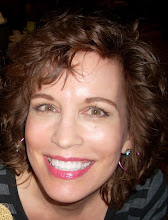With another book, that is. This one has taken me a long time. There are a couple of reasons why. For one thing, my new book is a traditional fantasy except that it’s in first person, and so I had to get back into including a bit more description than in my last few action-oriented books. Not that there isn’t action in traditional fantasies, but the world building is more involved and lush.
The other reason this one took so long is because in the middle I got really discouraged. The good news is I’ve had multiple agents reading my manuscripts. The bad news is none of them ultimately wanted any of them. I know if agents are reading my stuff I can write. I know that. Intellectually. But each rejection still makes me feel like quitting, if only for a moment. So I took a break from this book and wrote a bunch of shorts, getting my publishing fix.
So I finally finished. And in doing so I’ve come to understand an interesting thing about how I write. I do lots of different readings for editing, one of which is searching for my favorite words. Every writer has them. My favorite words all have to do with expressions, body parts, and the involved muscles and tendons. What I realized is that even though conversations are "heard" in my head I also see them, and when my people talk they are constantly smiling, nodding, gesturing, walking over to one another, etc. I "see" my people so clearly that when I write all that visual stuff goes in there.
That’s the way people really communicate, but of course, in many ways writing isn't real. I like to say writing is a glorified representation of real, in the same way I wouldn’t put a whole scene about brushing teeth unless it added to the plot. Understanding how and why I write allows me to edit my work more efficiently. Now I only use those visual indicators sparingly: instead of conversation, for emphasis, or when I need to identify the speaker.
I wondered why visual is so important to me and I've come up with some probable reasons. I’m a psychologist by training and as such have spent many years watching for those sorts of non-verbal communications. I’m also an artist and would describe myself as a visual person. I think it might be a good practice to contemplate what sort of writer you are; do you hear conversations? See them? None of the above? Maybe both? I’m not sure how other methods other than visual might play into composition, but it sure would make a fascinating study.
On to the next book.





